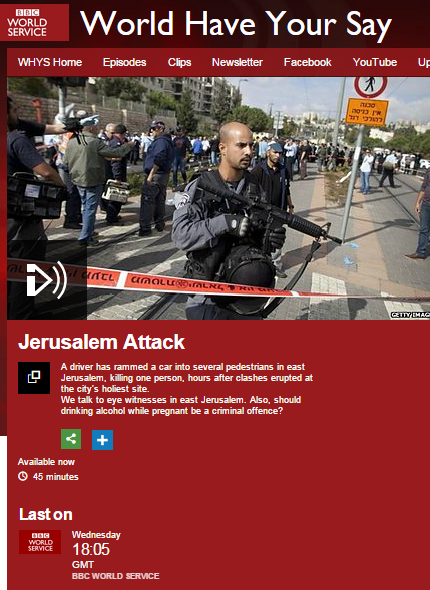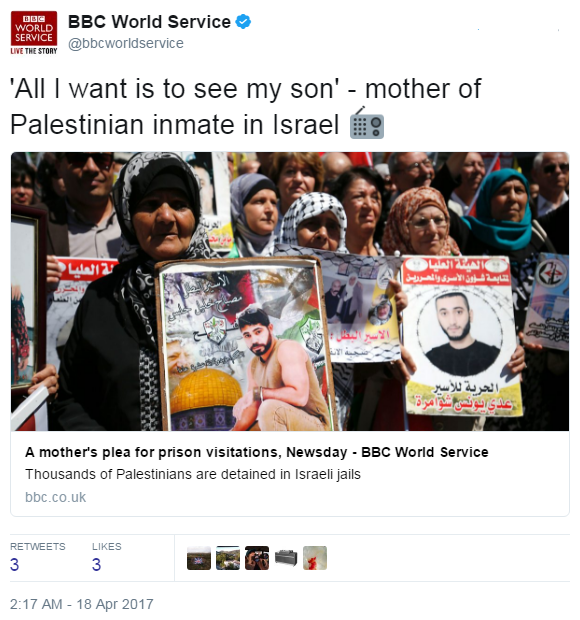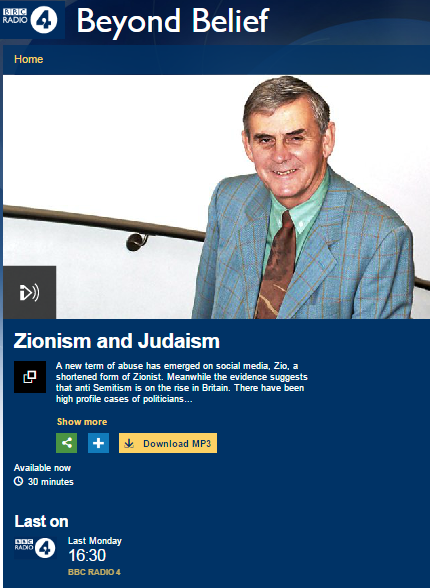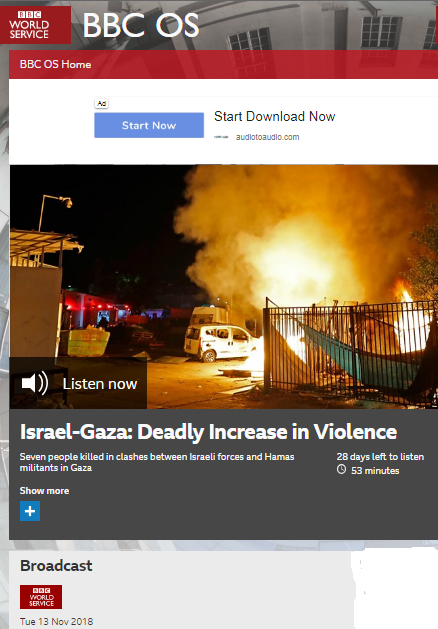h/t DL
As regular readers know, one topic frequently discussed on these pages is the double standard employed by the BBC when reporting terrorism in Israel and terrorism in other locations.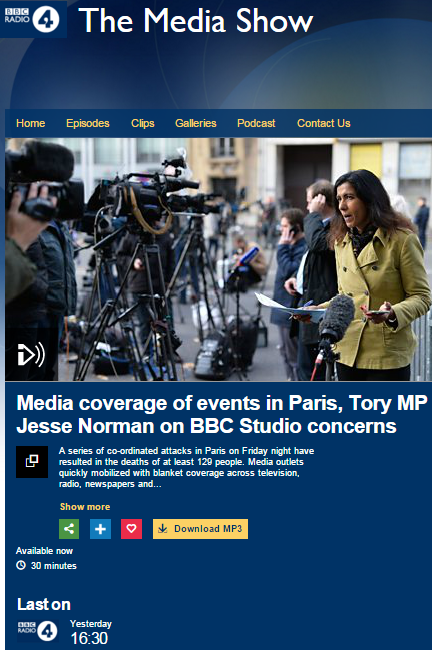
The November 18th edition of the BBC Radio 4 programme ‘The Media Show’ was devoted in part to the subject of media coverage of last weekend’s terror attacks in Paris and one of the topics discussed by host Steve Hewlett and his guests was described as follows in the introduction:
“… should journalists and presenters use the words terrorist and terrorism, as many did without attribution?”
From around 16:30 here, that topic was discussed quite extensively, with contributions from former OFCOM official Stewart Purvis and the BBC’s Controller of Daily News Programmes Gavin Allen providing some interesting insight into the background to the corporation’s lack of consistency in the use of language when reporting terror attacks – despite its apparently recently altered guidelines on the topic stressing the importance of consistency in reporting.
Steve Hewlett: “…the BBC says ‘since there is no agreed consensus on what constitutes a terrorist or a terrorist act, the use of the word will frequently involve value judgements. As such we should not change the word terrorist when quoting someone else but we should avoid using it ourselves. We try to avoid using the term terrorist without attribution’. So, Stewart, where do you think people should be on this question?”
Stewart Purvis: “Well I think the origin of this problem arises from the difference between broadcasting just for the UK and broadcasting out [side] the UK. I think there are very few people who would say that for instance the bombs that the IRA planted in London – or what happened in Paris, to be blunt – was anything other than terrorism. It was a tactic to shock and terrorise people in a city. But what happens when you talk about what might happen in the middle of Israel or in the Palestinian territories? If a bomb goes off there or they’ve stabbed someone to death, what is the language to describe that? And I think that’s partly why the BBC has taken against this word terrorism because it actually – on its international services – does not want to have to make a judgement in these particular countries. The result is that it doesn’t use it so much in the UK which actually annoys some people who say ‘well how else would you describe what’s going on?’.”
Steve Hewlett: “Gavin; I heard some BBC correspondents use the word unattributed [in reporting on the Paris attacks] …ah….and your guidelines sort of say you shouldn’t.”
Gavin Allen: “They don’t really say that. […] But it doesn’t say don’t use it. It’s quite an important distinction. I mean Stewart’s absolutely right; there are complications about using it when you’re broadcasting on the World Service etc. But actually it’s not that we don’t use the word. I think invariably it’s about how much does it clarify and how much does it cloud.”
This discussion yet again highlights the fact that the BBC’s approach to the use of the word terror and its derivatives when reporting on events in Israel is not rooted solely in the objective of informing audiences of the nature of the events which have taken place. After all, shooting and stabbing passengers on a city bus in Jerusalem is obviously intended to “shock and terrorise people in a city” in exactly the same way as planting a bomb in London or gunning down concert-goers in Paris.
It has been clear for a long time that the BBC employs differing approaches to such obviously similar acts of terrorism because its handling of the topic does not distinguish between method and aims, means and ends. The result is that even though the acts may be identical or similar, the BBC’s use – or not – of the word terrorism hinges on its political judgement of the aims of the perpetrators and the description of the means is adjusted accordingly.
In this discussion, however, we also gain insight into an additional factor which apparently prevents the BBC from reporting terrorism against Israelis consistently and accurately: second-guessing of how the description of, say, the brutal murders of early morning worshippers at a Jerusalem synagogue as an act of terror would be received by specific audience groups – and the adjustment of language accordingly. Interestingly, the incident at a mosque in Kuwait in June was described by the BBC as a terror attack on its international services and on social media.
That bizarre approach clearly not only patronizes and stereotypes BBC audiences worldwide (does the BBC really think that its Middle East audiences for example are too delicate to hear the politically motivated murders of Israelis described as terror?) but obviously also seriously undermines the corporation’s claim that it strives to achieve consistency “across all our services” when reporting terrorism.
Related Articles:
BBC News website does ‘one man’s terrorist’

